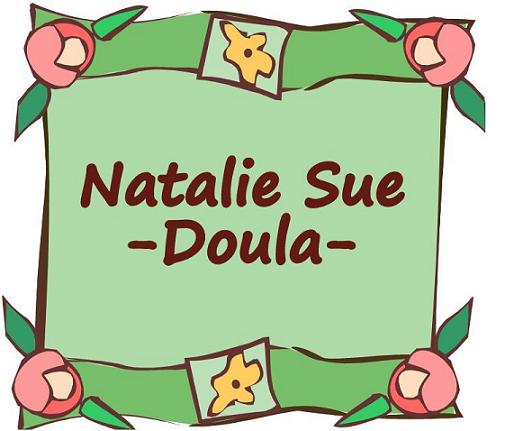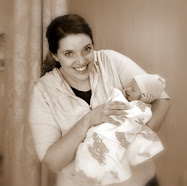“Here in America, surveys of women tell us that pain and pain relief do not generally play major roles in satisfaction with the childbirth experience, unless expectations regarding either are unmet. It’s that part about expectations that seems to matter. Since our response to pain is culturally defined, scenes from movies like “Knocked Up” — or “Rosemary’s Baby” or “Now and Then” or “Nine Months” — probably help set the cultural and psychic stage for excruciating pain, and help women decide well in advance of even getting pregnant to go for an epidural.”
This from a very thought-provoking, intelligent piece over at Salon today by pediatrician and father, Rahul Parikh. The topic is one I think about a lot: How does the culture around pain in childbirth impact our expectations for and even our experience of labor?
Have the terrifying, screaming scenes of agony typical of Hollywood births contributed to a kind of mythology of pain in childbirth? And does that mythology manifest in such a deep (as to be unnoticeable or normalized) fear and anxiety, we’re bound to buzz for the anesthesiologist, whether we plan on it or not? There’s quit a lot of research showing that pain is exacerbated by fear.
By Dr. Parikh doesn’t think mass media are the only ones to blame for whatever dread most women feel for birth :
“More important, we in medicine have ourselves to blame (or thank, depending on how you look at it) for our cultural perspectives on labor pain. There was a time when women birthed children at home, with the help of midwives, family and close friends. With the march of progress, birth became medicalized, the noble intent being to keep women and children safe and healthy through the process. Doctors are motivated to persuade women to eradicate pain for multiple reasons: We’ve never been taught or made any effort to discriminate birthing pain from any other kind, and don’t want to see our patients suffer; pain is viewed now as a “vital sign” that, like blood pressure or pulse, has to be tightly controlled; managing pain medically requires less effort on the part of nurses and doctors (as Cassidy’s book also points out) — just sit back, jab the catheter in and wait, instead of coaching, breathing and other supportive measures, all of which have been shown to help women in labor manage pain better; last but never least, medicine is a business — we can bill for the drugs, the needles, the catheters and all of the labor involved in keeping women pain free. (While the vast majority of women have hospital births, the rise of the doulas and the media attention to home-birthing suggests many people are actively searching for alternatives to this.)”
“More important, we in medicine have ourselves to blame (or thank, depending on how you look at it) for our cultural perspectives on labor pain. There was a time when women birthed children at home, with the help of midwives, family and close friends. With the march of progress, birth became medicalized, the noble intent being to keep women and children safe and healthy through the process. Doctors are motivated to persuade women to eradicate pain for multiple reasons: We’ve never been taught or made any effort to discriminate birthing pain from any other kind, and don’t want to see our patients suffer; pain is viewed now as a “vital sign” that, like blood pressure or pulse, has to be tightly controlled; managing pain medically requires less effort on the part of nurses and doctors (as Cassidy’s book also points out) — just sit back, jab the catheter in and wait, instead of coaching, breathing and other supportive measures, all of which have been shown to help women in labor manage pain better; last but never least, medicine is a business — we can bill for the drugs, the needles, the catheters and all of the labor involved in keeping women pain free. (While the vast majority of women have hospital births, the rise of the doulas and the media attention to home-birthing suggests many people are actively searching for alternatives to this.)”
At the end of his piece, Parikh tells us that though he supported and massaged his wife through labor, “none of those things replaced the potency of the mighty epidural when it came to making her, and me, feel better about having a baby.”
I’d love to hear everyone’s thoughts on this.
Here are some of mine:
1. We need to see more kinds of births.
Not just painful ones. Not just orgasmic ones. Not just un-medicated ones. Not just screaming hospital emergencies (of which, in reality, there are very few). We need more balance. Here is the antidote to the Knocked Up birth scene, and this one is real!
Not just painful ones. Not just orgasmic ones. Not just un-medicated ones. Not just screaming hospital emergencies (of which, in reality, there are very few). We need more balance. Here is the antidote to the Knocked Up birth scene, and this one is real!
2. Our idea of what “normal” is in birth needs to be readjusted. Birth may not be a walk in the park for everyone, but it is actually just a normal physiological process. Sometimes it becomes abnormal, but at it’s most basic level it’s a bodily function. We need to become more enlightened, as individuals and as a culture, about the physiology of normal birth.
3. Birth can be painful.
Yup, even when you “trust it.” It might not be painful but rather “intense,” or maybe it’s “agony.” Some of this has to do with semantics, but there’s also just a huge range of experience. Having said that, pain/work/challenge is not the same as something scary or medically worrisome. Reducing fear can reduce pain. Some say it eliminates it altogether, but I’m not convinced this is true for all women or births. I think getting rid of a whole lot of fear can take the edge off the pain and make the difference between out-of-control feeling and manageable labor. How we are made afraid is very complex… movies, “medicalization” of birth… just the fact that you enter the hospital through “triage” evokes some fear right there. Could they just come up with another word for that initial check-in? This stuff undermines us… little by little.
Yup, even when you “trust it.” It might not be painful but rather “intense,” or maybe it’s “agony.” Some of this has to do with semantics, but there’s also just a huge range of experience. Having said that, pain/work/challenge is not the same as something scary or medically worrisome. Reducing fear can reduce pain. Some say it eliminates it altogether, but I’m not convinced this is true for all women or births. I think getting rid of a whole lot of fear can take the edge off the pain and make the difference between out-of-control feeling and manageable labor. How we are made afraid is very complex… movies, “medicalization” of birth… just the fact that you enter the hospital through “triage” evokes some fear right there. Could they just come up with another word for that initial check-in? This stuff undermines us… little by little.
4. A positive childbirth experience is not about whether or not you get the epidural…
It’s about whether you were treated with kindness and respect at a time of incredible vulnerability. It’s about being informed and empowered to make the choices that are right for you.
It’s about whether you were treated with kindness and respect at a time of incredible vulnerability. It’s about being informed and empowered to make the choices that are right for you.
5. Hospitals should offer more than epidural when it comes to pain relief.
What if there were tubs in all the rooms? And all women were treated to doulas? Epidurals are really efficient at getting rid of pain. I’m so glad we have them! But what if you would prefer to try something else? It can be hard. You go into a lot of hospitals today and there’s really just one thing on the pain-coping menu: the epidural. I feel for women who’d like to attempt a non-medicated birth–they have to BYO pain-coping resources and they have to resist the culture of medical birth at each step of the way. (Don’t let “triage” undermine your confidence!, etc) It can be done, but boy would we be better off if having a normal birth didn’t have to involve “fighting” for it.
What if there were tubs in all the rooms? And all women were treated to doulas? Epidurals are really efficient at getting rid of pain. I’m so glad we have them! But what if you would prefer to try something else? It can be hard. You go into a lot of hospitals today and there’s really just one thing on the pain-coping menu: the epidural. I feel for women who’d like to attempt a non-medicated birth–they have to BYO pain-coping resources and they have to resist the culture of medical birth at each step of the way. (Don’t let “triage” undermine your confidence!, etc) It can be done, but boy would we be better off if having a normal birth didn’t have to involve “fighting” for it.



No comments:
Post a Comment